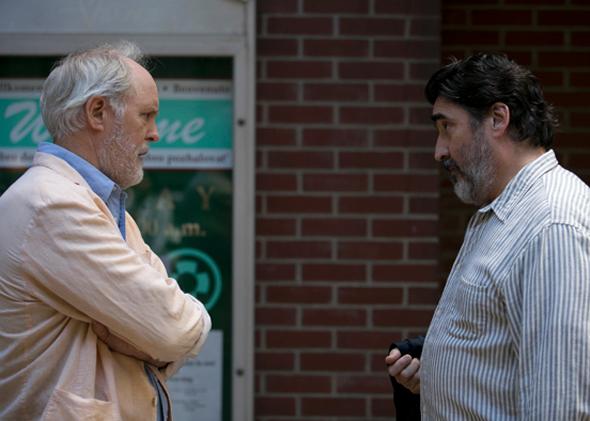It’s a story that sounds as if it were taken directly from today’s headlines. A gay couple, together for nearly 40 years, marries in front of close friends and family in a small ceremony after their state extends that freedom to same-sex couples.
This is how Love Is Strange, the new feature film from Ira Sachs opening Friday, begins. John Lithgow and Alfred Molina play—wonderfully—Ben and George, who marry after sharing the better part of a lifetime together. Sadly, the couple’s post-wedding happiness is short-lived. The decision to marry the love of his life comes with a heavy price for George. He is fired from his longtime job as the choir director at a Catholic school. Though family and friends step up to help the couple through this difficult chapter, Ben and George are forced to make painful sacrifices, including living apart.
This is increasingly what workplace discrimination against LGBTQ people looks like. In July, the ACLU and a number of LGBTQ organizations made the decision to withdraw support for the Employment Non-Discrimination Act, known as ENDA, due to an unprecedented, sweeping provision allowing religiously affiliated organizations—including hospitals, universities, and schools like the one where George worked—to discriminate based on sexual orientation and gender identity. The provision says that anti-LGBTQ discrimination is different—more acceptable and legitimate—than discrimination against individuals based on their race or sex.
Just look at the story of Matthew Barrett. In July 2013, Matthew was offered a job as food services director at Fontbonne Academy, a college prep high school in Milton, Massachusetts. With 20 years of work in the food services industry, Matthew was clearly well qualified.
But two days after he listed his husband as his emergency contact on the standard employment paperwork, his job offer was rescinded. Fontbonne is affiliated with the Roman Catholic Sisters of St. Joseph of Boston, and it didn’t matter that there was nothing religious about the food services job. An administrator told Matthew the school was unable to hire him because “the Catholic religion doesn’t recognize same-sex marriage.” Matthew subsequently filed a complaint with the Massachusetts Commission Against Discrimination and is represented by Gay & Lesbian Advocates & Defenders.
As unstoppable momentum continues to build for the freedom to marry, and an ever-increasing percentage of the nation live in states where same-sex couples enjoy such freedom, the harms of anti-LGBTQ discrimination have been brought into sharper focus. From examples like Matthew’s to couples like David Mullins and Charlie Craig who were turned away from businesses—including bakeries, florists, and dress shops to name just a few—whose owners say their religious beliefs entitle them to discriminate, the direction that opponents of LGBTQ equality are headed is clear.
Protections for LGBTQ people must adhere to the civil rights standards that have served our nation well against other types of discrimination for the past half-century. As Ira Sachs’ film so poignantly reminds us, LGBTQ people and same-sex couples—like Ben and George—deserve nothing less than equality under the law.
